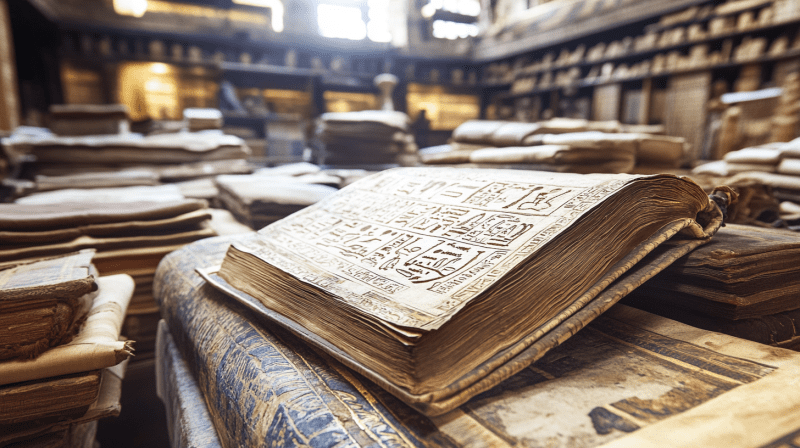Gilgamesh is a legendary figure in ancient Mesopotamian mythology and is considered one of the earliest known literary characters. He is the central character in the Epic of Gilgamesh, an ancient poem that dates back to the third millennium BCE. Gilgamesh was the king of Uruk, a city-state in ancient Sumeria, and was believed to have been two-thirds god and one-third human. The epic tells the story of his adventures and his quest for immortality. Gilgamesh is often depicted as a powerful and arrogant ruler who undergoes a transformation through his encounters with various challenges and characters. His story has had a lasting impact on literature and has been influential in shaping the hero archetype in mythological and literary traditions.
In addition to his mythological significance, Gilgamesh is also believed to have been a historical figure, with some scholars suggesting that he may have been a real king who ruled in the 27th century BCE. His enduring legacy has had a lasting impact on Mesopotamian culture and continues to be a subject of fascination for historians, archaeologists, and enthusiasts of ancient civilizations.
The Historical Context of Gilgamesh
The Epic of Gilgamesh is one of the oldest known works of literature in the world. It tells the story of the legendary king of Uruk, Gilgamesh, and his adventures with his friend Enkidu. The epic has been passed down through different versions over time, and each version offers a unique perspective on the story.
To understand the historical context of the Epic of Gilgamesh, it is important to first understand the significance of Uruk in Mesopotamian civilization. Uruk was one of the earliest cities in the world, and it was located in what is now modern-day Iraq. The city was a center of trade and culture, and it was known for its impressive architecture and advanced irrigation system.
The earliest references to Gilgamesh in historical texts come from Sumerian poems that date back to the third millennium BCE. These poems describe Gilgamesh as a powerful king who is two-thirds god and one-third human. He is depicted as a fierce warrior, but also as a tyrant who mistreats his people.
The most famous version of the Epic of Gilgamesh is the Akkadian version, which was written in the second millennium BCE. This version tells the story of Gilgamesh’s quest for eternal life after the death of his friend Enkidu. Along the way, he battles monsters and meets a wise man named Utnapishtim, who has survived a great flood and been granted immortality.
Other versions of the epic have been discovered over time, including a Hittite version and a Babylonian version. Each version offers a slightly different take on the story, but they all share the same basic elements.
The historical context of the Epic of Gilgamesh is important because it helps us understand the culture and beliefs of ancient Mesopotamia. The epic was likely used to teach moral lessons and to provide entertainment, and it remains a fascinating work of literature to this day. By exploring the different versions of the epic, we can gain a deeper understanding of the story and its significance in human history.
Gilgamesh: The Legendary King
Gilgamesh is depicted as a powerful and fearless leader, known for his immense strength and bravery. Throughout the epic, he engages in various battles and challenges, demonstrating his prowess as a warrior. His exploits include defeating the monstrous Humbaba, slaying the Bull of Heaven, and embarking on a quest for immortality. These feats showcase Gilgamesh’s determination and ambition, as well as his willingness to confront formidable adversaries.
In addition to his physical prowess, Gilgamesh is also portrayed as a complex and multi-dimensional character. He is depicted as a proud and arrogant ruler, often using his power to oppress his people. However, he also exhibits instances of kindness and empathy, particularly in his interactions with Enkidu, a wild man that the gods created to oppose Gilgamesh. Their bond evolves from a fierce rivalry to a deep and meaningful friendship, ultimately shaping Gilgamesh’s understanding of loyalty and companionship.
Furthermore, Gilgamesh’s interactions with the gods play a significant role in the epic. He is both revered and challenged by the divine beings, who serve as influential forces in his life. The gods’ involvement in Gilgamesh’s journey highlights the themes of fate and mortality, as well as the complexities of human-divine relationships in ancient Mesopotamian culture.
Ultimately, Gilgamesh’s story offers valuable insights into the human experience, exploring themes of friendship, power, mortality, and the pursuit of meaning. His legendary status and enduring legacy continue to captivate audiences, making him a timeless figure in world literature.
The Epic Journey of Gilgamesh
The Epic Journey of Gilgamesh is one of the oldest recorded stories in human history. It is a tale of adventure, friendship, and the search for immortality. The epic narrative follows the journey of Gilgamesh, the king of Uruk, and his companion Enkidu as they embark on a quest to defeat the monstrous Humbaba and seek eternal life.
Gilgamesh, a strong and haughty king who inspires fear in his subjects, makes his appearance at the start of the epic. The gods create Enkidu, a wild man, to challenge and humble Gilgamesh. The two become friends and decide to embark on a journey to the Cedar Forest to defeat Humbaba, a monstrous creature who guards the trees.
The quest for immortality becomes a central theme in the story when Enkidu dies, leaving Gilgamesh devastated. He sets out on a journey to find the secret of eternal life, seeking the advice of Utnapishtim, the only mortal to have achieved immortality. Utnapishtim tells Gilgamesh the story of the great flood and how the gods granted him eternal life.
The significance of the quest for immortality lies in the human desire to overcome death and achieve eternal life. The story of Gilgamesh shows that this desire is universal and has been present in human culture for thousands of years. However, it also teaches that the pursuit of immortality is futile and that death is a natural part of life.
The epic narrative of Gilgamesh also contains valuable lessons and moral teachings. It shows the importance of friendship, loyalty, and accepting one’s mortality. The story also highlights the consequences of arrogance and the need for humility.
Legacy and Influence of Gilgamesh
Gilgamesh is a legendary figure from ancient Mesopotamia whose story has survived for thousands of years. His epic tale, which dates back to the third millennium BCE, has had a profound impact on Mesopotamian culture and literature, and continues to resonate with modern audiences in literature, art, and popular culture. In this blog post, we will explore the legacy and influence of Gilgamesh, including his impact on ancient Mesopotamian culture and literature, his echoes in modern-day culture, and the enduring lessons and relevance of his story in today’s world.
Gilgamesh’s impact on ancient Mesopotamian culture and literature Gilgamesh was a historical king who ruled the city of Uruk, in what is now modern-day Iraq. His story, which was passed down through oral tradition, was eventually written down in the form of a poem known as the Epic of Gilgamesh. This epic poem is considered one of the earliest works of literature in the world, and it has had a significant impact on Mesopotamian culture and literature.
The Epic of Gilgamesh tells the story of a powerful king who embarks on a quest for immortality after the death of his friend Enkidu. Along the way, he battles monsters and meets a wise man named Utnapishtim, who has survived a great flood and been granted immortality by the gods. Gilgamesh ultimately fails in his quest for immortality, but he learns valuable lessons about the nature of life and death.
The story of Gilgamesh has had a profound impact on Mesopotamian culture and literature. It has been translated into many different languages and has influenced countless works of literature throughout history. The themes of the epic, such as the search for meaning and the struggle with mortality, are universal and continue to resonate with readers today.
Gilgamesh’s echoes in modern-day literature, art, and popular culture Gilgamesh’s story has also had a significant impact on modern-day culture. The epic has influenced many works of literature, including J.R.R. Tolkien’s The Lord of the Rings and George R.R. Martin’s A Song of Ice and Fire. The character of Gilgamesh has also appeared in many works of art, such as paintings, sculptures, and films.
In addition, the themes of the epic continue to be relevant in modern-day culture. The search for meaning and the struggle with mortality are universal themes that continue to resonate with audiences today. The story of Gilgamesh has also been used to explore issues such as power, friendship, and the relationship between humans and the natural world.
The enduring lessons and relevance of Gilgamesh’s story in today’s world The story of Gilgamesh continues to be relevant in today’s world. The themes of the epic, such as the search for meaning and the struggle with mortality, are universal and continue to resonate with readers today. In addition, the story of Gilgamesh can be used to explore issues such as power, friendship, and the relationship between humans and the natural world.
The story of Gilgamesh also teaches us valuable lessons about the nature of life and death. Gilgamesh’s quest for immortality ultimately fails, but he learns that the true meaning of life lies in the relationships we form with others and the legacy we leave behind. This message is as relevant today as it was thousands of years ago.
In conclusion, Gilgamesh remains a significant historical and mythological figure due to his representation of human nature and the pursuit of immortality. As the King of Uruk, he embodies the power and strength of ancient Mesopotamian rulers, while his quest for eternal life reflects the universal desire for transcendence. The enduring legacy of Gilgamesh can be seen in various literary and cultural works throughout history, from the Bible to modern-day film and literature. It is important to appreciate and explore ancient texts like the Epic of Gilgamesh, as they provide valuable insights into the beliefs, values, and customs of past civilizations. By studying these texts, we gain a deeper understanding of human history and culture and can better appreciate the diversity and complexity of the world we live in.





